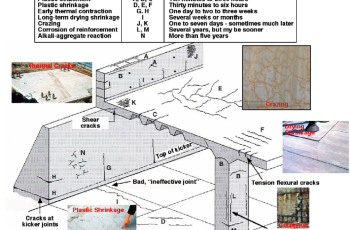Finding the right contractor for your project can feel like navigating a maze. This guide will help you understand the process, from initial planning to project completion, ensuring a smooth and successful experience.
Understanding Your Needs
Before you even start searching for contractors, it’s crucial to define your project’s scope. What exactly needs to be done? What’s your budget? Creating a detailed plan will not only help you find the right contractor but also manage expectations and costs. Consider using project management software to assist in this phase. Learn more about project planning here.
Finding Potential Contractors
There are several avenues for finding qualified contractors. Online platforms like Thumbtack and Angi are popular choices.  You can also ask for recommendations from friends, family, and neighbors. Checking online reviews on sites like Yelp is also a great way to gauge a contractor’s reputation. Remember to always verify licenses and insurance.
You can also ask for recommendations from friends, family, and neighbors. Checking online reviews on sites like Yelp is also a great way to gauge a contractor’s reputation. Remember to always verify licenses and insurance.
Vetting Contractors Thoroughly
Don’t rush into hiring the first contractor you find. Take the time to interview several candidates. Ask detailed questions about their experience, their process, and their approach to problem-solving. Request references and check them diligently. This article provides a detailed contractor interview checklist. [IMAGE_2_HERE]
Contracts and Agreements
Before any work begins, ensure you have a comprehensive and legally sound contract in place. This document outlines the scope of work, payment schedule, timeline, and other important details. Don’t hesitate to consult with a lawyer if necessary. A well-defined contract protects both you and the contractor. Check out our sample contract template.
Managing the Project
Regular communication is key to a successful project. Schedule regular check-ins with your contractor to monitor progress, address any issues promptly, and ensure the work aligns with your expectations. [IMAGE_3_HERE] Consider using a project management app to track tasks and deadlines. Here’s a helpful guide on project management.
Payment and Final Inspection
Establish a clear payment schedule in your contract. Typically, payments are made in installments tied to milestones. Once the project is complete, conduct a thorough final inspection to ensure everything meets the agreed-upon standards. Learn more about payment strategies.
Dispute Resolution
While you hope for a smooth project, disputes can arise. Having a clear contract and maintaining good communication can minimize conflicts. [IMAGE_4_HERE] If disagreements do occur, try to resolve them amicably through discussion. If necessary, consider mediation or arbitration as alternatives to litigation. Find a mediator near you.
Conclusion
Hiring a contractor can be a significant undertaking, but by following these steps and prioritizing clear communication, you can significantly increase your chances of a positive outcome. Remember, thorough planning, diligent vetting, and a well-defined contract are your best allies in a successful project.
Frequently Asked Questions
What should I look for in a contractor’s insurance? Ensure they have general liability and workers’ compensation insurance to protect you from potential accidents or damages.
How much should I pay a contractor upfront? Avoid paying a large sum upfront. Stagger payments according to project milestones outlined in the contract.
What if the contractor doesn’t complete the project as agreed? Refer to the contract for dispute resolution methods and seek legal counsel if necessary.
Can I fire a contractor? Yes, but check your contract for specific clauses and procedures related to termination.
How do I find references for contractors? Ask for at least three professional references, and contact them to inquire about their experiences.

